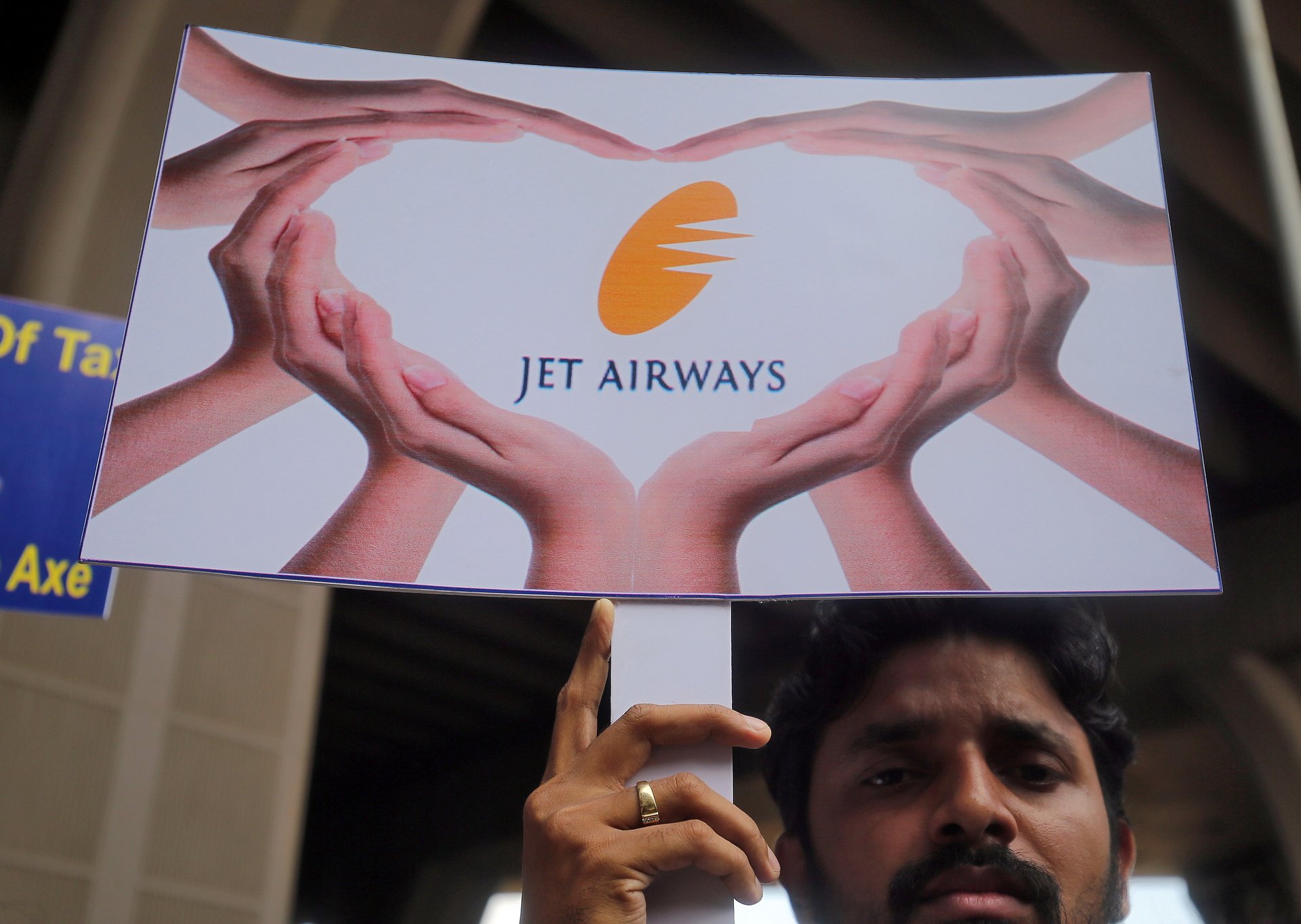Will Jet Airways ever fly again?
The new promoters of India's Jet Airways are running into cash troubles

For months, Jet Airways, once India’s largest private airline, has been aiming to re-enter Indian skies. But these plans are being hindered by one key obstacle: Jet’s new promoter doesn’t actually own the airline yet.
Since it went bankrupt in 2019, Jet has since been owned by its creditors—a group of banks led by the State Bank of India (SBI). In 2020, the creditors approved a reorganization plan submitted by the Jalan-Kalrock Consortium (JKC), which became Jet’s new promoter.
But three years on, JKC finds itself in a standoff with Jet’s creditors over pending dues, including payments owed to former employees. As a result, the banks still own Jet, and the airline, which was expected to start domestic operations in 2022, is still grounded.
Amid the delayed relaunch and the reported departures of some staff, JKC is now also facing financial difficulties.
“The longer-than-expected time being taken for the [transfer of ownership] may result in some difficult but necessary near-term decisions to manage our cashflows to secure the future, while the airline is still not in our possession,” a JKC spokesperson told Quartz.
Who owns Jet Airways?
The standoff between JKC and Jet’s creditor-owners is unfolding in the National Company Law Tribunal (NCLT), an arbitration panel formed by the Indian government that adjudicates issues between Indian companies. The creditors have claimed that JKC hasn’t fulfilled the conditions mentioned in its reorganization plan, and are therefore refusing to hand Jet over to JKC. These conditions include obtaining approvals of landing slots at major Indian airports and clearances for international traffic. For its part, JKC claims it has fulfilled all these necessary conditions.
On Sunday (Jan. 2), in a fresh spurt of bad blood, the monitoring committee demanded that Sanjiv Kapoor, the JKC-appointed CEO of Jet, stop describing himself as such. The news, reported by CNBC TV18 citing sources, prompted JKC to clarify, in a statement, that Kapoor will remain CEO-designate until ownership of the airline is transferred.
The standoff over Jet Airways
For months, reports have emerged of Jet’s owners worrying about recovering their losses from JKC. Citing unnamed sources, the Economic Times in November said that the owners were considering selling 11 of Jet’s planes because of JKC’s delay in clearing payments.
In response to a query about the sale of planes from Quartz, JKC refused to comment. The seven-member monitoring committee (pdf) that is overseeing the airline’s transition, and that includes some of Jet’s biggest creditors, did not reply to a set of emailed questions from Quartz.
Paying the dues owed to Jet’s ex-employees is one of JKC’s other headaches. Last October, the NCLT ordered JKC to pay the former staff a sum totaling 275 crore rupees ($33 million). But JKC maintains that, as per its approved reorganization plan, only Rs 52 crore was allocated for employee payments.
“We reaffirm that there has been no delay from the JKC to implement the resolution plan, and we are in full compliance with the approved plan,” JKC’s spokesperson said to Quartz.
Jet Airways’ fate hangs in the balance
For JKC and Jet’s owners, a long legal battle looks likely. At the moment, they’re awaiting a final decision from the NCLT. But despite these uncertainties, JKC said it was optimistic that Jet will fly again soon. After the transfer of full ownership, JKC’s spokesperson said, Jet would be ready to take to the skies “within 60-90 days.”
“In terms of preparedness, we have put into place a highly experienced, professional management team, and negotiated excellent terms for our various supplier contracts that can often be critical in this industry,” the spokesperson told Quartz. “The terms we have negotiated...will help Jet Airways in its revived form to be one of the most cost-effective airlines in the country.”
